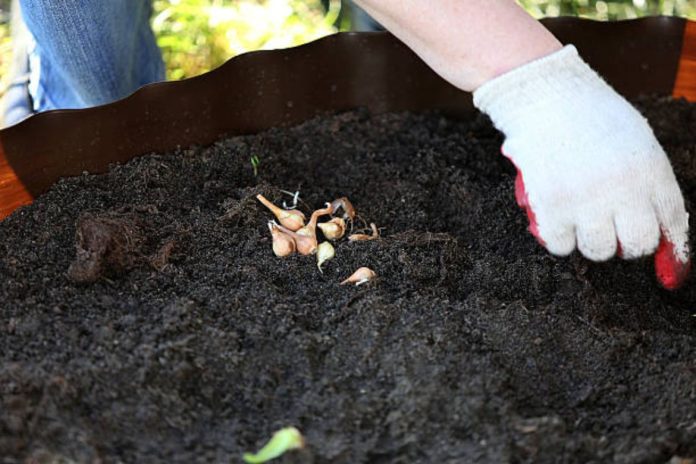If you’re looking to give your garden a natural boost and improve plant growth, mushroom compost might be just what you need. This organic material, often overlooked, can transform your soil and enhance your garden’s productivity. Let’s dive into how mushroom compost works and why it’s a fantastic addition to your garden.
What is Mushroom Compost?
Mushroom compost is an organic material used as a soil conditioner and fertilizer. It’s a byproduct of mushroom farming, made from a mix of materials like straw, manure, and gypsum. After mushrooms are harvested, the leftover compost is rich in nutrients and beneficial microbes that can significantly enhance soil health.
Benefits of Mushroom Compost for Plant Growth
1. Enhanced Soil Structure
One of the primary benefits of mushroom compost is its ability to improve soil structure. The compost helps to break up clay soils, making them more porous and easier for roots to penetrate. This improved soil structure enhances water drainage and reduces soil compaction, creating a better environment for plants to thrive.
2. Rich Nutrient Content
Mushroom compost is packed with essential nutrients that plants need for healthy growth. It contains a balanced mix of nitrogen, phosphorus, and potassium, along with trace elements like calcium, magnesium, and sulfur. These nutrients are slowly released into the soil, providing a steady supply of food for your plants.
3. Improved Moisture Retention
Mushroom compost has excellent water-holding capacity. It helps retain moisture in the soil, reducing the frequency of watering. This is especially beneficial during dry spells or for plants that require consistent moisture levels.
4. Increased Microbial Activity
The compost is teeming with beneficial microbes that help break down organic matter and make nutrients more available to plants. These microbes also contribute to the overall health of the soil by suppressing harmful pathogens and promoting a balanced ecosystem.
5. Natural pH Balancer
Mushroom compost can help balance soil pH. It’s generally neutral to slightly alkaline, which can help counteract overly acidic soils. This pH balancing effect can improve nutrient availability and overall plant health.
How to Use Mushroom Compost in Your Garden
1. Soil Amendment
To use mushroom compost as a soil amendment, spread a layer of compost over your garden beds and mix it into the top 6-8 inches of soil. This will improve soil structure and nutrient content. Aim for a thickness of about 1-2 inches.
2. Top Dressing
For established plants, mushroom compost can be used as a top dressing. Simply spread a thin layer around the base of the plants and lightly work it into the soil. This will provide a nutrient boost without disturbing the plant roots.
3. Potting Mix
Mushroom compost can be mixed with other ingredients to create a rich potting mix. Combine it with equal parts of garden soil and a coarse material like sand or perlite for a well-draining mix that’s perfect for container gardening.
Tips for Using Mushroom Compost
- Avoid Overuse: While mushroom compost is beneficial, too much can lead to nutrient imbalances. Use it in moderation and mix it with other organic materials if needed.
- Check for Salt Content: Some mushroom composts may have higher salt levels. Test the compost before application to ensure it’s suitable for your plants.
- Let It Cure: If using fresh mushroom compost, allow it to cure for a few weeks before applying it to your garden. This will help reduce the risk of any potential issues with high salt content or ammonia.
Common Misconceptions
1. Mushroom Compost is the Same as Manure
Mushroom compost is often confused with manure, but they’re different. While mushroom compost does contain manure, it also includes other materials and undergoes a different composting process.
2. Mushroom Compost is Only for Mushrooms
Despite its name, mushroom compost is not just for growing mushrooms. It’s a versatile material that benefits a wide range of plants.
Benefits Beyond the Garden
Mushroom compost isn’t just great for your garden; it also has benefits for the environment. By using this byproduct, you’re recycling waste from mushroom production and reducing the need for synthetic fertilizers. This makes it an eco-friendly choice for sustainable gardening.
Alternative Uses
1. Lawn Care
Mushroom compost can also be used to improve lawn health. Spread it over your lawn to enhance soil quality and provide a slow-release nutrient source.
2. Composting
If you’re composting at home, mushroom compost can be added to your compost pile to boost its nutrient content and aid in the decomposition process.
Final Thoughts
Incorporating mushroom compost into your gardening routine can yield remarkable results. Its ability to enhance soil structure, improve nutrient availability, and support beneficial microbes makes it an invaluable resource for plant growth. If you’re looking to elevate your garden’s health and productivity, mushroom compost is a natural and effective choice.
For those looking to explore more about gardening enhancements, including other valuable garden supplies, be sure to check out local stores or online resources. By adding mushroom compost to your gardening arsenal, you’re investing in a healthier, more vibrant garden.








